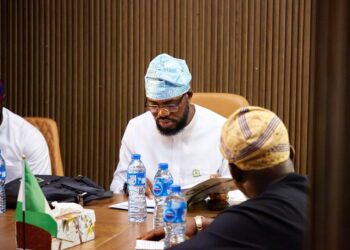Governor Kashim Shettima of Borno state on Monday released the grim statistics of deaths and material losses suffered by the state due to the Boko Haram insurgency.
Mr. Shettima gave the data at the annual Murtala Mohammed memorial lecture held at the Shehu Yar’Adua Centre in Abuja.
The governor, who delivered a paper “Managing the Boko Haram Crisis
in Borno State, Experiences and Lessons for a Multiparty, Multiethnic
and Multireligious Nigeria”, said theinsurgency has led to the deaths of
almost 100,000 persons, based on estimates by community leaders in the
state over the years.
“The Boko Haram insurgency has led to deaths of almost 100,000
persons going by the estimates of our community leaders over the years,”
he said.
This casualty figure is the highest ever provided by any government
official from a state where remote areas which witness attacks by the
insurgents are difficult to reach.
“Two million, one hundred and fourteen thousand (2,114,000) persons
have become internally displaced as at December of 2016, with five
hundred and thirty seven thousand, eight hundred and fifteen (537,815)
in separate camps; 158,201 are at official camps that consists of six
centres with two transit camps at Muna and Customs House, both in
Maiduguri.
“There are 379,614 IDP’S at 15 satellite camps comprising Ngala,
Monguno, Bama, Banki, Pulka, Gwoza, Sabon Gari and other locations in
the state. 73,404 persons were forced to become refugees in neighbouring
countries with Niger having 11,402 and Cameroon having 62,002.
“We have an official record of 52,311 orphans who are separated and
unaccompanied. We have 54,911 widows who have lost their husbands to the
insurgency and about 9,012 have returned back to various communities of
Ngala, Monguno, Damboa, Gwoza and Dikwa,” the governor said.
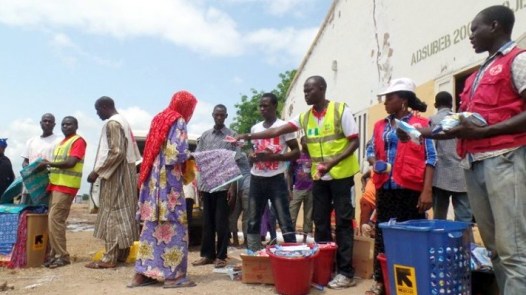
Mr. Shettima also said based on the post-insurgency Recovery and
Peace Building Assessment, RPBA, report on the north-east which was
jointly validated by the World Bank, the European Union, the Presidency
and the six states of the north-east, Boko Haram has inflicted damages
to the tune of $9 billion on the region.
He said “of this amount, the destruction in Borno State amounts to $6 billion and they are supported by grim statistics”.
Conspiracy theories hampered effort to tackle insurgents early
Mr. Shettima also gave accounts of how conspiracy theories hampered
the fight against Boko Haram under the administration of President
Goodluck Jonathan.
”For me, the most critical experience and lesson I have had and
learnt within the last five years has been the power of conspiracy
theories and how they can strongly undermine the fight against
insecurity and the management of the humanitarian crisis,” he said.
The governor said Boko Haram insurgency grew from strength to
strength because of an initial conspiracy theory that began after the
2011 general elections.
“Distinguished Ladies and gentlemen, after the Boko Haram carried out
its first suicide attack on the headquarters of the Nigerian Police
Force in June 2011 and a later attack on the UN building in August, both
in Abuja, a conspiracy theory emerged immediately alleging that the
Boko Haram was set up by Muslim-majority northern leaders to target
Christians and make Nigeria ungovernable for His Excellency, President
Goodluck Ebele Jonathan.
“Given the fact that both attacks took place in June and August, which were within three months after President Jonathan was sworn-in, this conspiracy hypothesis immediately assumed a life of its own,” he said.
He also said those who believed the theory did not care to recall
that the first major attacks by Boko Haram in Borno and Bauchi states
which took place in June 2009, had occurred under the late President
Umaru Yar’Adua, a Northern Muslim from Katsina State.

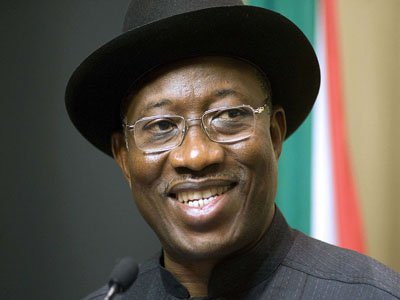
“The proponents of this ridiculous conspiracy theory didn’t care to
recall that a Northern Muslim from Kaduna State was actually the
Director-General of President Jonathan’s 2011 elections campaign.
“Surprisingly, when it suited their narrow political agenda even
pro-Jonathan northerners propagated that the insurgency reflected the
collective will of the Northern opposition to undermine the federal
government.
“What that meant in effect, was that the theory changed from all
Northerners using Boko Haram to undermine Jonathan into a narrower
theory that northerners in the opposition were using Boko Haram to
destabilise Jonathan’s administration. The end result was an alibi for
the state not to admit its failure to rout the Boko Haram at the
earliest opportunity.
“It appeared the President himself initially believed the conspiracy
theory. For instance, when he visited Borno State on Thursday, 13th of
March, 2013, President Jonathan requested to meet differently with
officials of the Borno State Chapters of the Christian Association of
Nigeria and the Jama’atul Nasril Islam.
“The President neither invited nor stopped me from participating but I
understood he wanted to meet each group without me. Both meetings were
arranged for the President without me knowing the agenda.
“To his credit, I must acknowledge, President Jonathan was actually
on a fact finding mission because the following day, during his courtesy
call at the Government House in Maiduguri, he said that officials of
the Christian Association in Borno State had told him that Boko Haram
was not targeting only churches and Christians but rather, had attacked
many Mosques and killed many Muslims.
“President Jonathan went further to say that from his findings, the
Boko Haram had actually attacked more of majority Muslim communities in
the state. The President’s revelation was an indication that he didn’t
understand the crisis before March, 2013.
“Whether his initial lack of understanding of the situation caused
his ineffective response to the crisis before 2013, is a matter for
conjecture.
“But Borno people consigned to the receiving end of poor policy
articulation and response, were simply victims of the resultant inaction
or paralysis. And they paid with their lives and property, for which
the Nigerian Constitution in its fundamental directive principles,
compels the state to use its exclusive possession of the organised means
of violence to guarantee,” he said.
Mr. Shettima also said he got upset over the Chibok schoolgirls’
abduction of April 14, 2014 and the conspiracy theory that followed it.
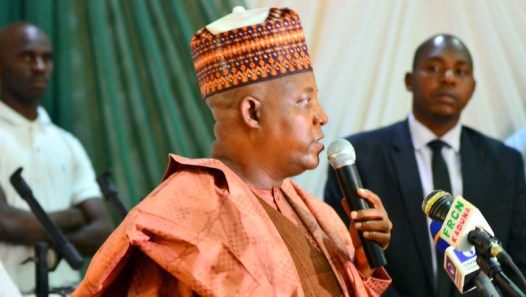
He said that the abduction gave him the impression that the correct
lessons were not learnt at the presidency despite Mr. Jonathan’s
personal findings in Borno.
He said instead of both the federal and state governments to combine
strength towards rescue efforts, a conspiracy theory was immediately
created that denied that an abduction of the poor schoolgirls was real.
The theory, he said, presumed that key politicians in the opposition
APC cooked up the abduction story mainly to embarrass Mr. Jonathan and
the PDP.
He said days later; when the Bring Back Our Girls campaigns began,
the theory was changed from cooked abduction story to one saying it was
designed and masterminded by the opposition led by his administration.
“Meanwhile, the failure by the state to perform its constitutional
duty in rescuing the schoolgirls and bringing back the Sambisa forest
into the Federal Republic of Nigeria, by whatever means necessary, were
glossed over as an embarrassed nation sought refuge in yet another
conspiracy to undermine a Christian and Southern President.
God would ordain it, President Goodluck Jonathan, in May, 2014,
constituted an investigative panel to gather facts regarding the
abduction. The panel had credible persons from all segments, including
representatives of the majority Christian community in Chibok, serving
and retired personnel of the armed forces, local and foreign-based women
and civil rights activists, journalists and some persons believed to be
very close to both President Jonathan and his wife.
“The panel met all stakeholders from heads of security
establishments, leadership of the West African Examination Council in
Borno State, and the panel was also in Chibok to meet agonizing parents
and community members. After an exhaustive investigation, the panel
submitted its report to President Jonathan.
“The Presidency didn’t disclose the content of the report and didn’t
point any more accusing fingers at Borno State Government,” he said.
Mr. Shettima said despite these experiences, the conspiracy theorists are still at work under President Buhari.
He said months after the 2015 elections and the inauguration of Mr.
Buhari, another conspiracy theory was “cooked up” following resumed
attacks by militants in the Niger Delta.

“There were some northerners who began to create a conspiracy theory
that the militants were regrouped and being funded by those who lost out
in the 2015 elections, in order to destabilize President Buhari’s
administration.
“There were those who even believed and supported the theory in the
south and they went as far as posting through the online and social
media, that it was the turn of the Niger Delta to exact revenge on how
Boko Haram was used to destabilize President Jonathan’s administration.
“Again, the main issue, namely the inability of the state to
guarantee production of oil and secure vital strategic investments in
the Niger Delta, being the only variable outside the price of oil in the
international markets within the ability of the Nigerian state to
influence for good, was side-tracked.
“Interestingly, even though it is crystal clear that conspiracy
theories do no one any good, they seem to be stubbornly attractive in
Nigeria because even as we speak, there have been series of social media
messages in recent weeks, alleging that Fulani’s were being deployed to
churches to cause mayhem.
“The whole thing seems to be a sort of effort to link a Presidency
led by a Fulani man with the activities of murderous criminals, some or
most of whom may be Fulani’s by ethnicity,” he said.
Mr. Shettima therefore, called on Nigerians to always suppress their
biases by working hard to get facts on all issues; otherwise, he said,
“we will continue to fall victims of conspiracy theories”.
“We must recognise that for every conspiracy theory, there is group
that stands to gain politically. As Nigerians, we should regularly free
our minds and ask ourselves, who stands to gain on any conspiracy theory
we come across.
“We must also not, anymore, allow figments of crazy imaginations as excuses for the state to fail to protect life and property.
“We must stop condoning our collective callous attitude that
predispose us to blaming victims for their losses in lives and property,
the protection of which is a main reason for the existence of every
government in the first place,” he said.
Earlier in short messages, both acting President, Yemi Osinbajo and
former President, Olusegun Obasanjo extolled the virtues of the late
former Head of State, Murtala Mohammed.
Mr. Osinbajo said it is a thing of pride for Nigeria to have had a leader like the late Mr. Mohammed.
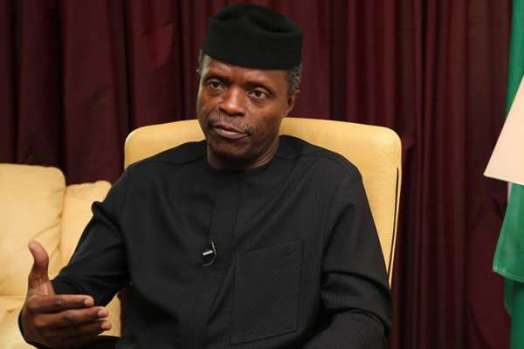
He also commended Governor Shettima for “providing true leadership in this humanitarian crisis” in his state.
Mr. Osinbajo also said it is the “political and religious elites who
promote the conspiracy theories” that the governor spoke about.
The acting president said all Nigerians have the same need, which is
“food, comfort and future for the children” which, he said, “have no
tribe, culture or religion”.
Also, Mr. Obasanjo, who, chairs the Board of Trustees of the Murtala
Mohammed Foundation, said the Foundation, led by the daughter of the
late Head of State, Aisha Oyebode, is achieving the purpose for which it
was established.
He said when the decision to set up the foundation was taken 16 years
ago, “we did not know how it would grow, but we had faith and belief
that it will grow and it has grown”. PREMIUM TIMES






